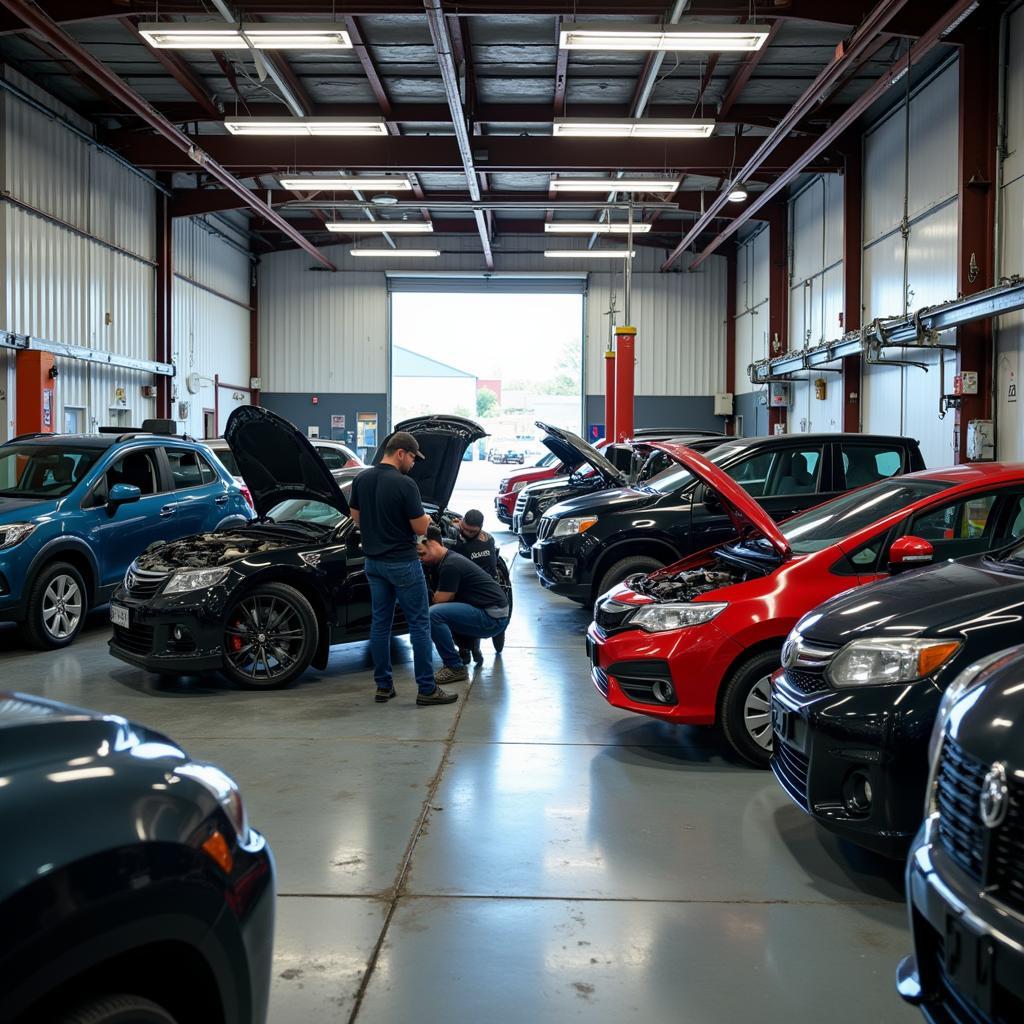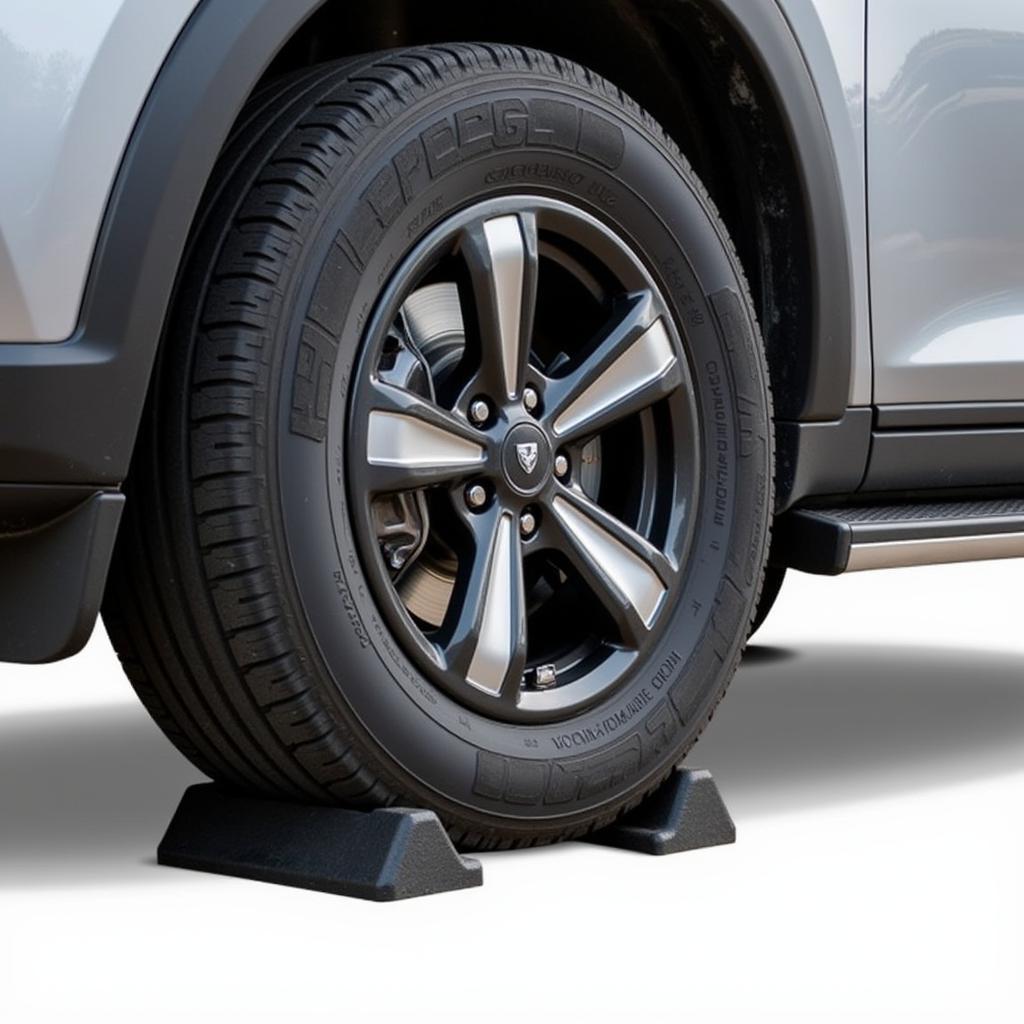Owning a car comes with the responsibility of proper upkeep, and understanding the different Types Of Maintenance For A Car is crucial for its longevity, performance, and your safety. Whether you’re a seasoned car enthusiast or a new car owner, this comprehensive guide will provide valuable insights into keeping your vehicle in top shape. Let’s delve into the various car maintenance types and explore why they’re essential.
Essential Car Maintenance Types
Car maintenance can be categorized into three main types:
1. Routine Maintenance
Routine maintenance encompasses the regular checkups and services that keep your car running smoothly. It includes:
- Oil Change: Engine oil lubricates moving parts, reduces friction, and prevents overheating. Regular oil changes, typically every 3,000-5,000 miles, ensure optimal engine performance.
- Filter Replacements: Air filters, oil filters, and cabin filters prevent contaminants from damaging your engine and keep the air inside your car clean. Regular replacement is vital.
- Tire Rotation and Pressure Check: Rotating tires ensures even wear and tear, extending their lifespan. Maintaining correct tire pressure is crucial for fuel efficiency and safe handling.
- Brake Inspection: Brakes are critical safety components. Regular inspections ensure they function properly, and timely pad/rotor replacement prevents costly repairs.
- Fluid Top-offs: Engine coolant, brake fluid, power steering fluid, and windshield washer fluid levels should be checked regularly and topped off as needed.
car maintenance types are essential for preventing major issues down the line.
2. Preventive Maintenance
Preventive maintenance goes beyond routine checks and focuses on anticipating potential problems before they arise. This includes:
- Timing Belt/Chain Replacement: The timing belt or chain synchronizes engine components. Failure can lead to catastrophic engine damage, making replacement at recommended intervals critical.
- Spark Plug Replacement: Worn-out spark plugs can cause misfires, reduced fuel efficiency, and engine damage. Replacing them at recommended intervals ensures optimal combustion.
- Coolant Flush: Over time, engine coolant loses its effectiveness. Flushing the system at recommended intervals prevents corrosion and overheating.
- Transmission Service: Transmission fluid lubricates gears and keeps the system cool. Regular service, including fluid and filter changes, ensures smooth shifting and prevents costly transmission repairs.
A car full maintenance plan often includes a combination of both routine and preventive services.
3. Corrective Maintenance
Corrective maintenance involves repairing or replacing parts that have already failed or are showing signs of wear and tear. This includes:
- Engine Repairs: Addressing engine noises, leaks, or performance issues promptly can prevent further damage and costly repairs.
- Transmission Repairs: Addressing slipping gears, rough shifting, or unusual noises promptly can prevent transmission failure.
- Suspension Repairs: Worn-out shocks, struts, or other suspension components can affect handling and ride comfort.
- Electrical System Repairs: Addressing electrical issues, such as malfunctioning lights, faulty sensors, or battery problems, ensures safety and prevents further electrical system damage.
“Ignoring minor car problems can lead to major headaches and expenses down the road. Regular maintenance is cheaper than major repairs,” says John Smith, a seasoned automotive engineer with over 20 years of experience.
 Car Repair Shop
Car Repair Shop
Why is Car Maintenance Important?
Regular car maintenance offers numerous benefits:
- Safety: Properly maintained vehicles are safer to drive, reducing the risk of accidents caused by mechanical failures.
- Reliability: Regular maintenance ensures your car is dependable, minimizing the chances of breakdowns.
- Longevity: Proper upkeep can significantly extend the lifespan of your vehicle.
- Resale Value: Well-maintained cars have higher resale values.
- Fuel Efficiency: A well-tuned engine and properly inflated tires contribute to better fuel economy.
Tips for Effective Car Maintenance
- Consult Your Owner’s Manual: Your car’s owner’s manual is the ultimate guide to its maintenance schedule and recommended services.
- Find a Trustworthy Mechanic: Establish a relationship with a reliable mechanic who can provide honest advice and quality service.
- Keep Records: Maintain detailed records of all maintenance and repairs performed on your vehicle.
- Address Issues Promptly: Don’t ignore warning signs or unusual noises. Addressing issues early can prevent more significant problems.
“Just like regular health checkups are important for us, regular maintenance is crucial for your car’s well-being,” adds Smith. “It not only saves you money in the long run but also provides peace of mind knowing your vehicle is safe and reliable.”
Conclusion
Understanding the different types of maintenance for a car is essential for every car owner. By following a consistent maintenance schedule, addressing issues promptly, and partnering with a trustworthy mechanic, you can ensure your vehicle’s longevity, performance, and your safety on the road.
If you’re considering opening a car maintenance garage, having a deep understanding of these principles will be invaluable. Remember, a well-maintained car is a happy car!
For any assistance or further inquiries, feel free to contact AutoTipPro at +1 (641) 206-8880 or visit our office at 500 N St Mary’s St, San Antonio, TX 78205, United States.






Leave a Reply